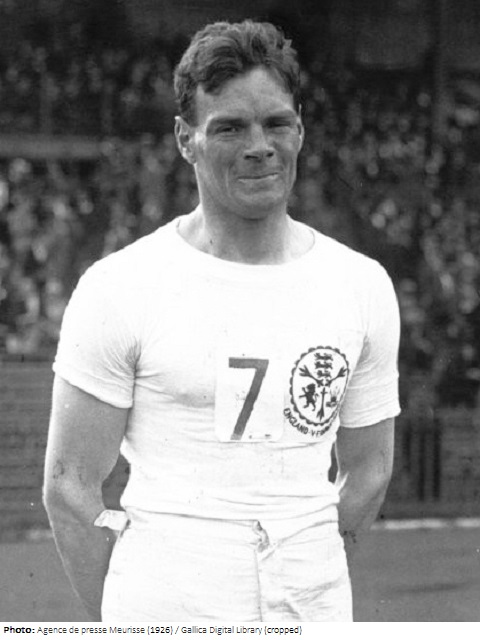Guy Butler

Biographical information
| Roles | Competed in Olympic Games |
|---|---|
| Sex | Male |
| Full name | Guy Montagu•Butler |
| Used name | Guy•Butler |
| Born | 25 August 1899 in Harrow, England (GBR) |
| Died | 22 February 1981 in St. Neots, England (GBR) |
| Measurements | 188 cm / 80 kg |
| Affiliations | University of Cambridge, Cambridge (GBR) / Achilles Club, (GBR) |
| NOC |  Great Britain Great Britain |
| Medals | OG |
| Gold | 1 |
| Silver | 1 |
| Bronze | 2 |
| Total | 4 |
Biography
Guy Butler enjoyed a distinguished Harrovian and sporting pedigree. His grandfather had been Headmaster of the school at the age of 26 and his father, also a Harrovian, won a cricket and athletics blue at Cambridge and was the English rackets champion in 1889.
After winning three events at the 1917 Public School sports, Guy Butler left Harrow and spent a year at the Royal Military College, Sandhurst, before entering Trinity College, Cambridge. In 1919 he won the AAA 440 yards title at his first attempt and although he was to establish himself as Britain’s leading quarter-miler, surprisingly he never won this event again.
After dead-heating with Bevil Rudd in the 1920 Oxford vs. Cambridge match, Butler finished second to the South African in both the AAA Championships and Olympic final, but he won an Olympic gold medal as anchor man on the relay team. Between 1920 and the 1924 Olympic Games, Butler won the 440 yards against Oxford in 1921 and 1922 and finished second at the 1922 and 1923 AAA Championships. Although a muscle injury forced him to use standing starts, he was in fine form at the 1924 Olympics. After setting a European record of 48.0 seconds in the semi-final of the 400 metres he was third in the final and won a second bronze medal in the relay.
Following a mediocre 1925 season, Butler reported to form in 1925. He was enjoying excellent training facilities as a teacher at Lancing College and after equaling the world 300 yard record of 30.6 seconds in June, he then won the AAA 220 yards title. In 1928 he became the first British track & field athlete to compete in three Olympic Games but after failing to reach the semi-finals of the 200 metres in Amsterdam he tired at the end of the season.
Guy Butler was unlucky in that he was perhaps never quite at his best in Olympic years but with one gold, one silver, and two bronze medals he was one of the most successful of all British Olympic athletes. After his retirement, Butler coached some notable athletes and made a significant contribution to the techniques of filming them in action. He was also one of the advisors on the design of the White City Stadium and served as the athletics correspondent of the Morning Post until it was merged with the Daily Telegraph in 1937.
Personal Bests: 220y – 21.9 (1926); 400 – 48.0 (1924).
Results
| Games | Discipline (Sport) / Event | NOC / Team | Pos | Medal | As | |
|---|---|---|---|---|---|---|
| 1920 Summer Olympics | Athletics |  GBR GBR |
Guy Butler | |||
| 400 metres, Men (Olympic) | 2 | Silver | ||||
| 4 × 400 metres Relay, Men (Olympic) | Great Britain | 1 | Gold | |||
| 1924 Summer Olympics | Athletics |  GBR GBR |
Guy Butler | |||
| 400 metres, Men (Olympic) | 3 | Bronze | ||||
| 4 × 400 metres Relay, Men (Olympic) | Great Britain | 3 | Bronze | |||
| 1928 Summer Olympics | Athletics |  GBR GBR |
Guy Butler | |||
| 200 metres, Men (Olympic) | 4 h3 r2/4 | |||||
| 4 × 100 metres Relay, Men (Olympic) | Great Britain | |||||
| 4 × 400 metres Relay, Men (Olympic) | Great Britain |